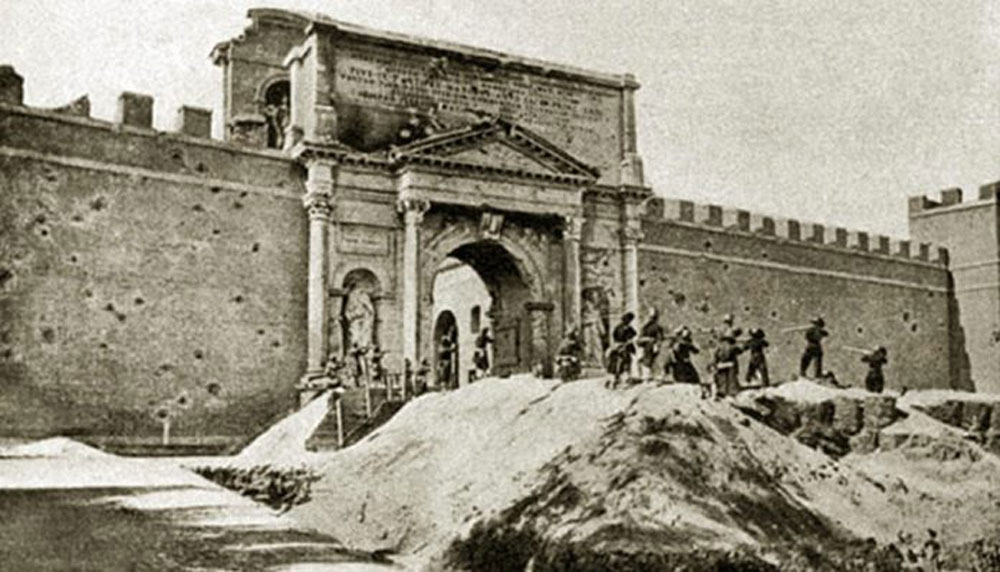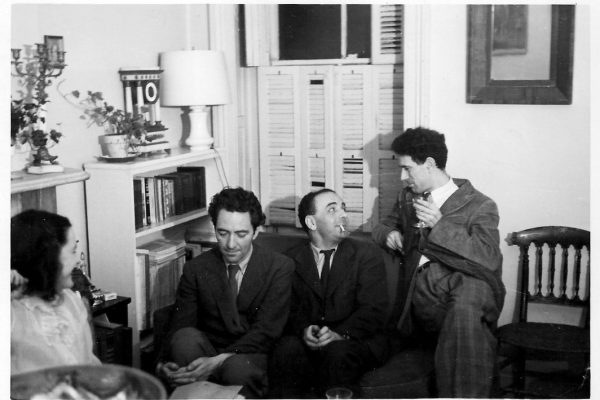Stuart Hughes, Prisoners of Hope: The Silver Age of the Italian Jews, 1924-1974, Harvard University Press, 1996
Henry Stuart Hughes
Henry Stuart Hughes (May 16, 1916 New York City – October 21, 1999 La Jolla, California) was an American historian, professor, and activist; he also advocated the application of psychoanalysis to history. Hughes was born to privilege as the grandson of Charles Evans Hughes, 1916 Republican Party nominee for President. Hughes’ father left for World War I while Stuart was still an infant, returning a year later when his son was three. In 1922, Hughes’ family moved to suburban Riverdale, Bronx, New York. When Charles Evans Hughes, Jr. was appointed United States Solicitor General by the new President, Herbert Hoover. The family’s stay in Washington, D.C. was relatively brief; Charles Hughes, Jr. was compelled to resign as Solicitor General when his father was appointed Chief Justice of the United States upon the death of William Howard Taft in 1930. He moved his family back to New York. Stuart was soon sent to boarding school at Deerfield Academy. He then attended Amherst College from 1933 to 1937. While in college, Hughes spent two summers in Germany in summer study programs, which were to serve him in good stead later. Hughes then attended graduate school at Harvard University, where he wrote his thesis on “The Crisis of the Imperial French Economy, 1810-1812.” He was in Paris working on this thesis when World War II started on September 1, 1939. Hughes soon returned to Cambridge. With his new Ph.D., Hughes was appointed a junior faculty member at Brown University. He remained there only briefly before enlisting in the United States Army as a private. The Army soon recognized that a historian who was fluent in French and German would better serve by being in military intelligence than in the field artillery. Hughes was soon after Pearl Harbor commissioned as an officer (initially, a second lieutenant) in what was soon to become the Office of Strategic Services. During the war, he served as an intelligence analyst whose work was generally well received, despite his association with political views that were, especially in the context of the United States military establishment of the time, decidedly left-wing. Hughes, by then a lieutenant colonel, was honorably discharged from active duty in 1946 and was soon reassigned as a civilian intelligence analyst, returning to Europe. In this role, he was to befriend pioneering black State Department official Ralph Bunche. In the State Department, Hughes bemoaned the rise of the Cold War mentality. In late 1947, he left to return to Harvard as an instructor and as the associate director of its new Russian Research Center. However, Hughes felt that he unwittingly sabotaged his career there by his early support for former Vice President Henry Wallace for President in 1948. Hughes left Harvard for Stanford University in 1952 at the height of the McCarthy era.
The years between 1924 and 1974 may indeed have been a silver age for the Italian Jews, but for Italian prose literature the age was golden. This distinguished book, which combines the expert skills of a seasoned historian with the understanding of a literary critic steeped in the language and literature of his subject, offers a challenging interpretation to those who already know these writers, and will serve as a masterly introduction for those whom it will inspire to make their acquaintance.
–Bernard Knox (New York Review of Books )
Hughes has written a provocative book…A work attentive to nuance and pleasurable to read.
–Adrian Lyttelton (Times Literary Supplement )
An elegantly written volume which probes the identity of modern Italian Jews through a sensitive reading of the works of six important Italian authors. The first work to address central issues of identity and assimilation in relation to Italian Jews, it evokes their unfamiliar world while suggesting the broader significance of their grappling with Judaism and modernity. Eschewing simplistic dichotomies, Hughes makes a valuable contribution to the study of Italian literature and Jewish history.
–Lois C. Dubin (Religious Studies Review )
This book should be read by anyone interested in either modern Italian literature or Italy’s Jewish community. (Hadassah Magazine )









